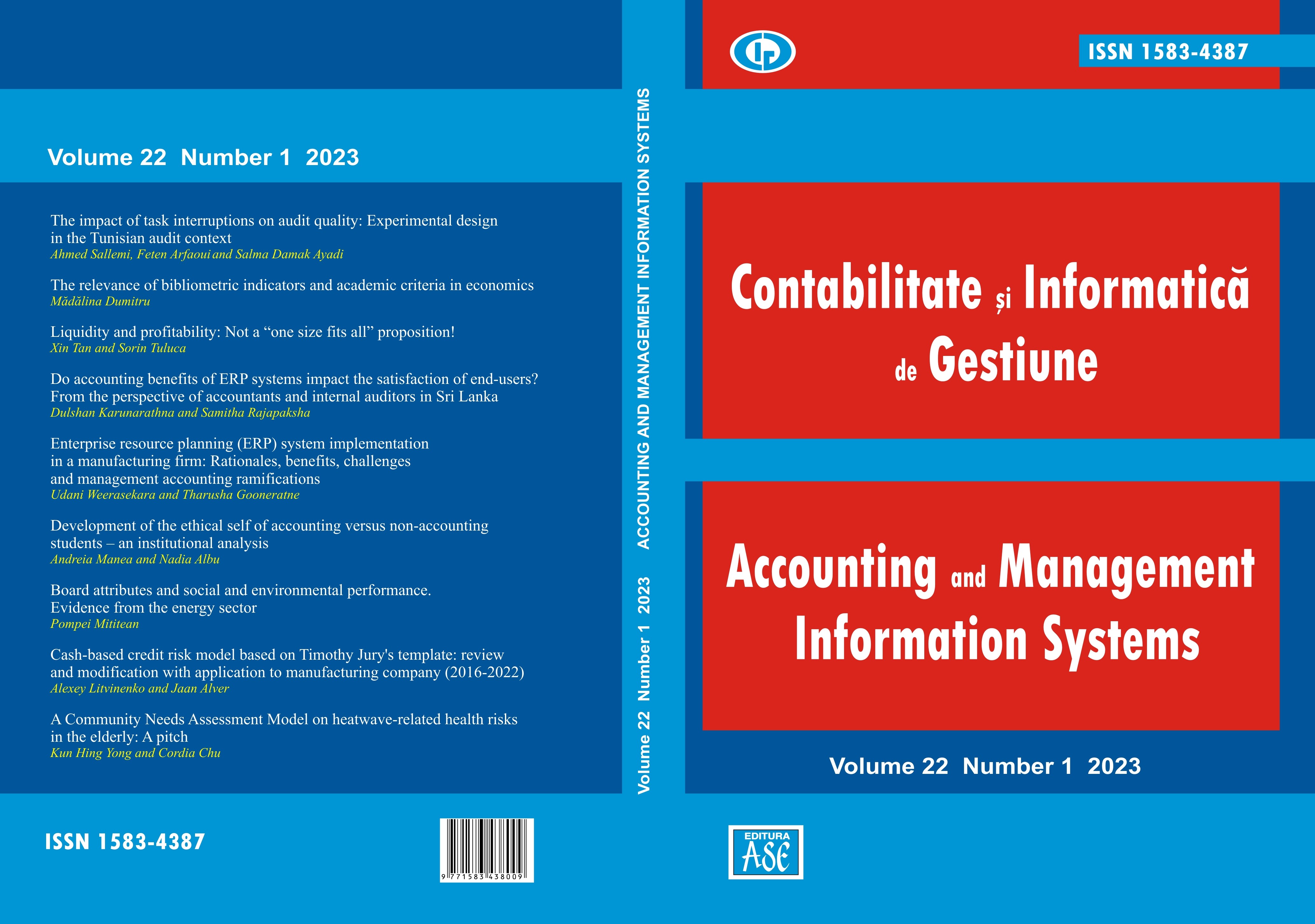Enterprise resource planning (ERP) system implementation in a manufacturing firm: Rationales, benefits, challenges and management accounting ramifications
Enterprise resource planning (ERP) system implementation in a manufacturing firm: Rationales, benefits, challenges and management accounting ramifications
Author(s): Udani Weerasekara, Tharusha GooneratneSubject(s): Business Economy / Management, Accounting - Business Administration
Published by: EDITURA ASE
Keywords: Management accounting; management accountant; enterprise resource planning system; case study; qualitative methodology;
Summary/Abstract: Research Question: What are the motives for adopting ERP in the case study firm, and its benefits and challenges? How has ERP got implicated in management accounting? Motivation: Organisations implement ERP systems expecting various benefits. Rather than being a mere technological exercise, such an implementation has implications for organisational structure, decision-making process, and communications systems; hence the success will depend on many considerations. Despite the availability of survey studies, there is limited research on how ERP systems unfold in specific organisations amid varied contextual influences, unique benefits, challenges and management accounting ramifications. Idea: Drawing case study evidence from a manufacturing firm in Sri Lanka, Sugar & Salt, this paper delves into the motives for the ERP system implementation, its benefits and challenges, as well as how the ERP system had got entangled in the management accounting practices of the firm. Data: The data was collected through in-depth interviews with participants involved with the ERP system and management accounting work, informal conversations and documents review. Data have been analysed based on thematic analysis. Tools: This study deploys the qualitative research methodology and case study strategy. It draws theoretical inspiration from institutional theory and brings together new institutional sociology (NIS) and old institutional economics (OIE).Findings: Our findings suggest that while the implementation of the ERP system was driven by the pressure from the regional (South Asian) headquarters, it enabled streamlining of the management accounting function and facilitated the costing, budgeting as well as the internal reporting system. The ERP system has also allowed management accountants to move towards analytical work. Contribution: The paper contributes to the literature on ERP and management accounting interface, extends the use of institutional theory in management accounting research, and provides insights to practitioners.
Journal: Journal of Accounting and Management Information Systems
- Issue Year: 22/2023
- Issue No: 1
- Page Range: 86-110
- Page Count: 25
- Language: English

